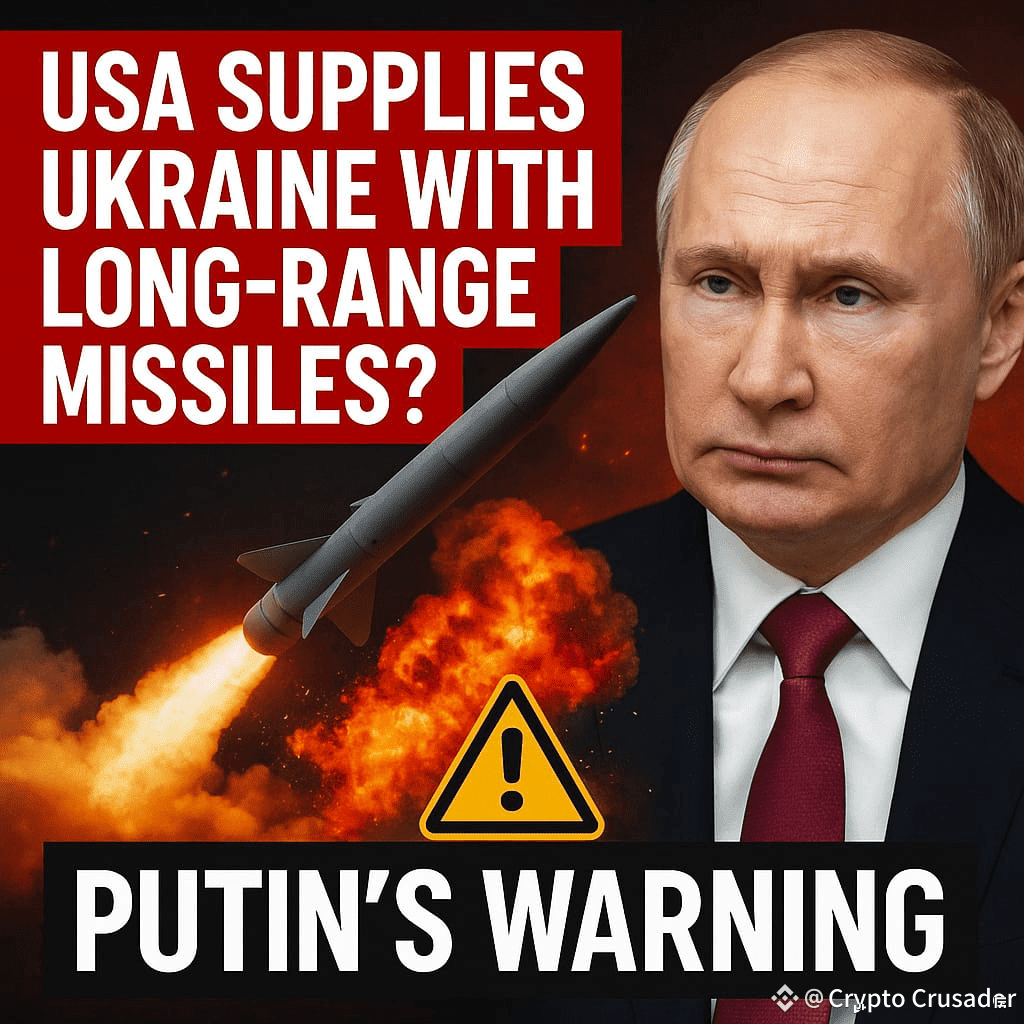Putin’s Fresh Warning
In an already fragile geopolitical environment, Russian President Vladimir Putin has issued a stern warning: if the United States sends long-range missiles to Ukraine, Russia may view this as direct military involvement by the US. This bold statement has caught global attention, sparking fresh concerns about escalating tensions between nuclear powers and the ongoing war in Ukraine.

Russia’s Red Line
Putin’s comments were made in response to ongoing discussions about Washington potentially equipping Ukraine with sophisticated weapons such as ATACMS, which can strike deep inside Russian territory. He made it clear that such a move would mark a dangerous escalation. "It would signify direct participation of the US and its allies in the conflict," Putin warned, adding that Russia would have no choice but to react.
For the Kremlin, arming Ukraine with long-range missiles poses a strategic threat. These weapons could reach critical Russian infrastructure and military positions, turning the conflict from an indirect confrontation into a direct clash between NATO and Russia — a scenario that could have devastating consequences.
US Support to Ukraine: Help or Escalation?
The United States has been a major supporter of Ukraine since the beginning of Russia’s invasion, providing advanced systems like HIMARS, Patriot missiles, and Javelins. However, Washington has been hesitant to cross the threshold of providing long-range strike capabilities that could hit deep inside Russia. The Biden administration fears that such a step might provoke Moscow into escalating further, possibly risking NATO’s direct involvement.
Those in favor of sending such weapons argue that Ukraine needs every tool to defend its territory and push back against Russian advances. But critics caution that supplying these capabilities could trigger severe retaliation from Russia, dragging more countries into the conflict.
Global Reactions and Concerns
Putin’s warning has elicited mixed reactions worldwide. Ukrainian leaders, including President Zelenskyy, have brushed aside Russian threats, asserting Ukraine’s right to defend itself with whatever means are available. Within NATO, opinions are split — some countries push for stronger military backing for Ukraine, while others advise restraint to prevent a broader war.
Globally, nations like India and China have urged all sides to de-escalate and prioritize diplomacy. The risk of nuclear confrontation remains a serious concern among analysts, who warn that any miscalculation could spiral out of control with catastrophic consequences.
What’s at Stake
This standoff highlights just how high the stakes are in the Russia-Ukraine conflict. Providing long-range missiles to Ukraine could shift the war’s dynamics but might also provoke dangerous retaliatory actions. Russia frames this as an issue of its national security, while the West sees it as standing with Ukraine against an invading force.
The choices made in Washington, Moscow, and Kyiv over the coming months will likely shape the trajectory of global stability. Will this be the point of no return, or will diplomacy find a way to prevent further escalation?
Time for Diplomacy
Given the rising tensions, it’s more critical than ever for all sides to engage in dialogue and pursue diplomatic solutions. Behind-the-scenes talks, negotiations, and international mediation could help steer the world away from the brink of a larger war. The world must not ignore the risks of stumbling into a broader conflict.
#Geopolitics #RussiaUkraineWar #NATO #MissileTensions #GlobalSecurity
